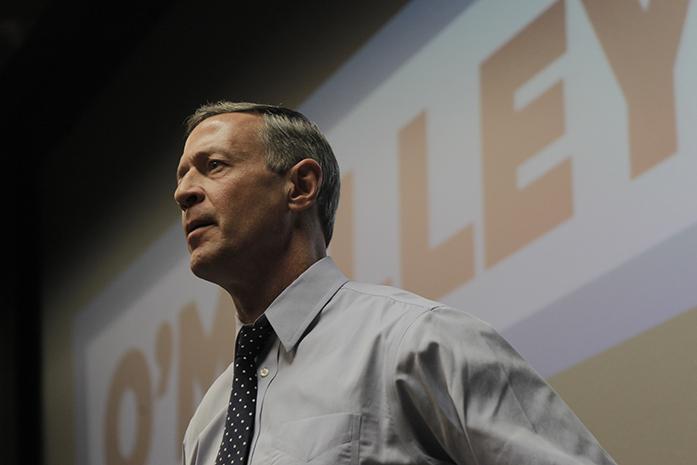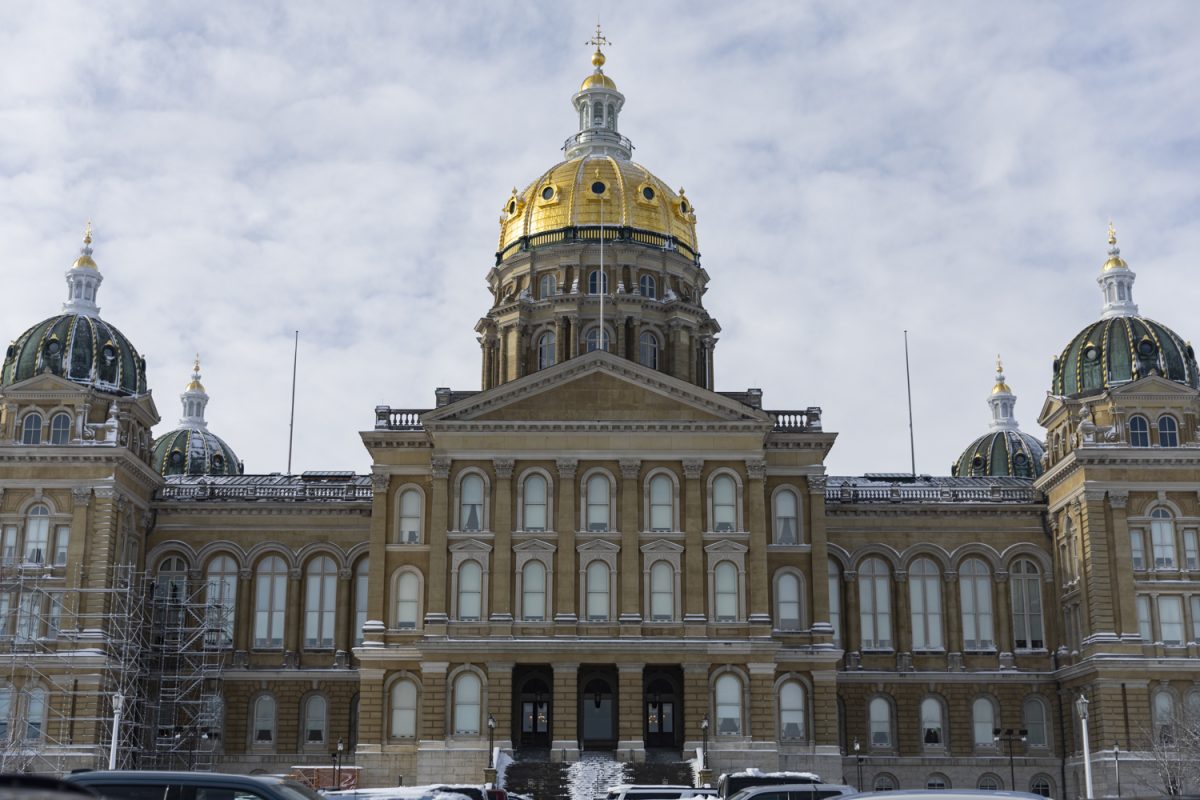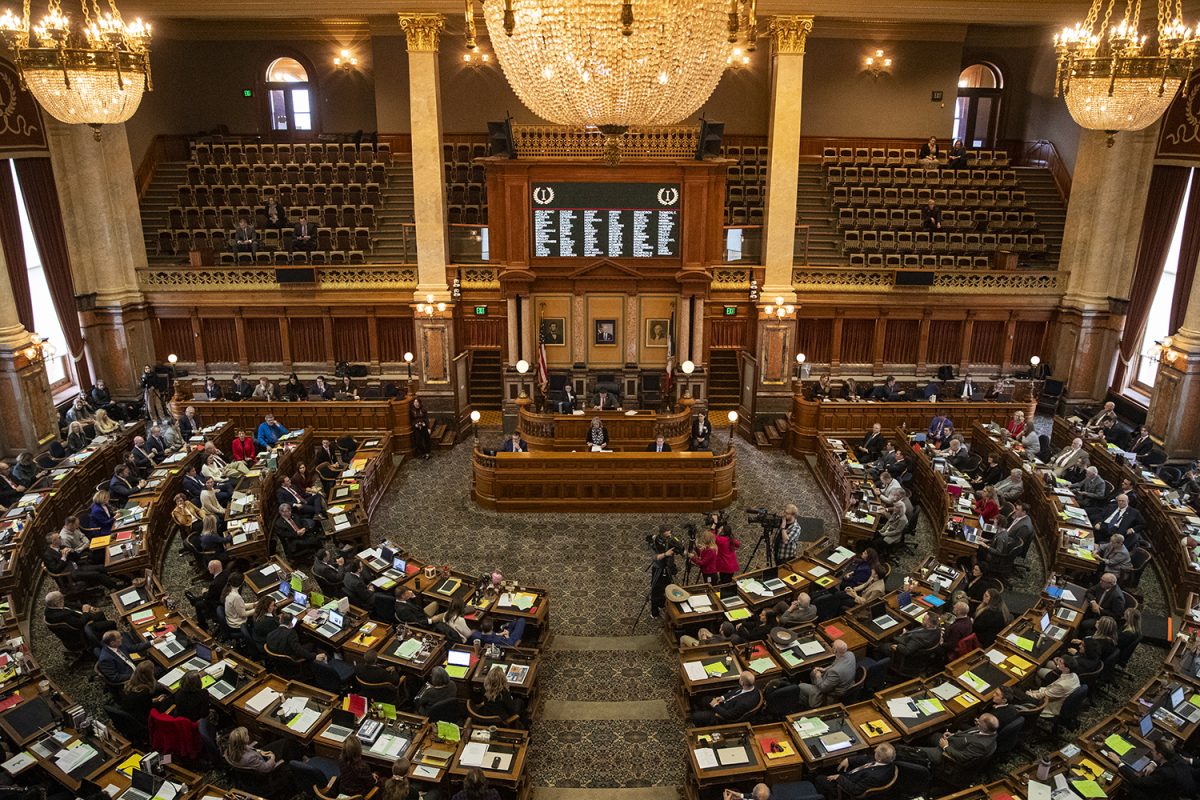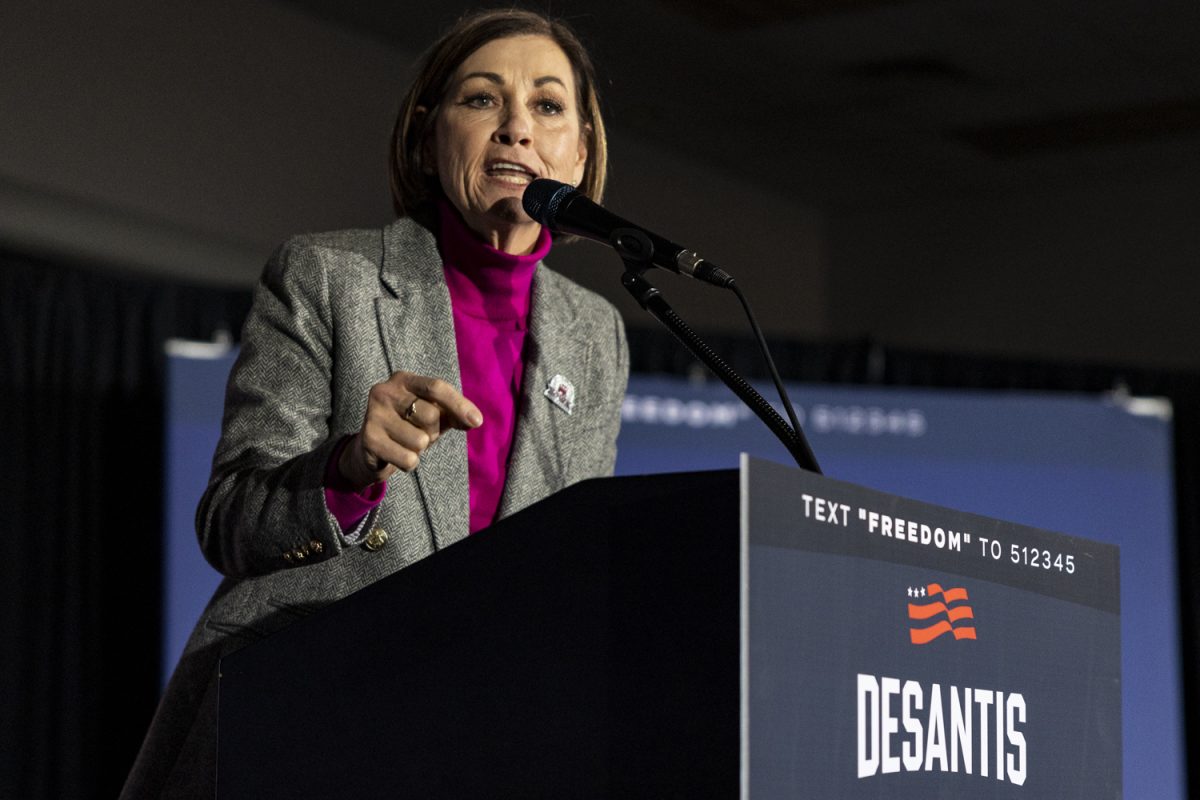Jordan Burmeister is an unabashed supporter of Bernie Sanders’s insurgent presidential bid, unafraid to challenge the political speech lines of the Vermont senator’s primary opponent, Hillary Clinton.
But on Tuesday, the 23-year-old University of Iowa finance major witnessed his presidential preference shift, ever so slightly. He sat less than 15 feet from former Maryland governor Martin O’Malley.
Dressed in an oversized red, white, and blue “Feel the Bern” sweatshirt, Burmeister, a staunch proponent of marijuana legalization, asked O’Malley to explain his stance.
RELATED: Clinton outpacing Democratic rivals in Iowa ground game
“What will lead you as president and why do you think so many candidates take such a weak stance on the issue, such as Hillary Clinton?” he asked, before being met with a near-full room of laughter to his direct jab at the former secretary of state.
O’Malley dove into his personal narrative, explaining how, as a Maryland prosecutor, he took a hands-off approach to marijuana prosecution.
RELATED: Iowa Senate passes medical marijuana bill
Under his leadership, he said, Maryland had more serious drug offenses that needed to be addressed.
“There’s a compelling argument for medical marijuana,” the former Baltimore mayor said in an interview with The Daily Iowan following a meet-and-greet at the UI’s Iowa Memorial Union. “If you talk to young people in our country, it’s pretty apparent where our nation’s attitude is headed.”
Although Burmeister still plans to caucus for Sanders come Feb. 1, to his own surprise, a movement on marijuana has helped put O’Malley at a close second place option.
RELATED: In Iowa, GOP candidates still lag behind Democrats in ground game effort
“It didn’t hit the nail on the head, but it was still better than Hillary Clinton,” he said of O’Malley’s response. “I know a lot of people in prison right now because of marijuana and we need to have serious discussions.”
In October, Sanders called for removing marijuana from a list of the most dangerous drugs outlawed by the federal government. That would allow states to legalize it without penalties from Capitol Hill.
In the past, Clinton and O’Malley have both said they are waiting from experimental results in Colorado and Washington before they make any commitments.
O’Malley predicted Tuesday that the U.S. will “see a change” in public perception of marijuana, and ongoing data being collected in Colorado “will greatly inform the debate” in the coming two years.
Struggling to break through to voters, O’Malley has in recent weeks and months sharpened his stance on both recreational and medicinal “bud.”
RELATED: O’Malley proposes three ‘horizons’ to improving U.S. education
In September, he gathered with policy makers, law enforcement and business owners in Denver for what was billed as a “marijuana legalization listening session.”
And on the trail, he has consistently cited Maryland’s marijuana legislation as one of his chief accomplishments.
But the 52-year-old has walked a fine line with the issue that has seen new attention in the 2016 presidential horse race.
When asked by the DI if O’Malley supports a national standard similar to that of Washington, D.C., where residents cannot possess, smoke or grow on federal property, but have been able to do so in their private home since February, O’Malley’s Iowa state director Kristin Sosanie said, “That’s splitting hairs.”
O’Malley quickly responded: “I’m very open to changes in our marijuana laws.”
RELATED: 4 takeaways from the Democratic debate in Des Moines
Fifty-eight percent of Americans say marijuana use should be legal in the U.S., according to the latest Gallup Poll published in October.
The two biggest differentiators of Americans’ opinion on pot are age and party identification. Younger Americans, Democrats and independents are the most likely of major groups to back it, while Republicans and older Americans are least likely to do so.
The telephone poll, conducted Oct. 7-11, randomly sample 1,015 Americans, aged 18 or older living in the U.S. and D.C. The poll’s margin of error was plus or minus 4 percentage points.
RELATED: VIDEO: Martin O’Malley meets with Daily Iowan Editorial Board
As governor, O’Malley had a murky relationship with proponents of being able to “puff, puff, pass” or consume “edible” candies laced with the active ingredient, THC.
When the Maryland statehouse took up the issue in his final legislative session, he expressed concerns that recreational pot use could be “a gateway to even more harmful behavior.”
However, he later signed a bill to decriminalize the possession of small amounts of marijuana, making it a civil penalty and fine for people caught with less than 10 grams.
RELATED: Marco Rubio to visit Ames, Iowa City, West Des Moines this week
He also threw his support behind the state’s legalization of the medical variety.
That’s welcome news for Karen Moser, 58, whose close friend has battled ovarian cancer for two years.
“She doesn’t want to eat, and she can’t smoke because doctors say it could cause a strain of lung cancer to develop,” said Moser, a 2007 Iowa caucus supporter of John Edwards and a 2012 backer of President Barack Obama. “If she could just eat a gummy bear like in Colorado, the edible marijuana would ease her pain and nausea.”
If elected president, O’Malley has said he would use executive authority to reclassify marijuana as a Schedule II drug, a shift that would allow doctors to issue prescriptions and accelerate medical marijuana research.
Adderall, cocaine, Vicodin and methamphetamine are each classified as Schedule II drugs. Marijuana is a Schedule I drug at the federal level, similar to ecstasy, heroin and LSD.
Schedule I drugs are defined as drugs with no currently accepted medical use and a high potential for abuse.













